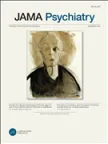| Titre : | Evaluation of field sobriety tests for identifying drivers under the influence of cannabis: A randomized clinical trial (2023) |
| Auteurs : | T. D. MARCOTTE ; A. UMLAUF ; D. J. GRELOTTI ; E. G. SONES ; K. F. MASTROPIETRO ; R. T. SUHANDYNATA ; M. A. HUESTIS ; I. GRANT ; R. L. FITZGERALD |
| Type de document : | Article : Périodique |
| Dans : | JAMA Psychiatry (Vol.80, n°9, September 2023) |
| Article en page(s) : | 914-923 |
| Note générale : |
Editorial: Ramaekers J.G., Vinckenbosch F., Gilman J.M. High traffic - The quest for a reliable test of cannabis impairment. JAMA Psychiatry, 2023, Vol. 80, n° 9, p. 871-872, https://doi.org/10.1001/jamapsychiatry.2023.2309
|
| Langues: | Anglais |
| Discipline : | PRO (Produits, mode d'action, méthode de dépistage / Substances, action mode, screening methods) |
| Mots-clés : |
Thésaurus géographique ETATS-UNISThésaurus mots-clés ETUDE RANDOMISEE ; CANNABIS ; CONDUITE DE VEHICULE ; TEST ; DEPISTAGE ; TETRAHYDROCANNABINOL ; PERFORMANCE ; PLACEBO ; EVALUATION |
| Résumé : |
Key Points:
Question: How accurate are field sobriety tests (FSTs) in identifying acute Delta9-tetrahydrocannabinol (THC) impairment? Findings: In this randomized clinical trial of 184 cannabis users randomized to THC or placebo, law enforcement officers classified 81.0% and 49.2%, respectively, as FST impaired, and officers suspected that 99.2% of FST-impaired participants received THC. Driving simulator performance was associated with select FSTs. Meaning: In this study, FSTs differentiated between THC- and placebo-exposed participants; however, the substantial overlap of FST impairment between groups and the high frequency at which FST impairment was suspected to be due to THC suggest that absent other indicators, FSTs alone may be insufficient to identify THC-specific driving impairment. |
| Domaine : | Drogues illicites / Illicit drugs |
| Refs biblio. : | 48 |
| Affiliation : | Center for Medicinal Cannabis Research, Department of Psychiatry, University of California, San Diego, CA, USA |
| Lien : | https://doi.org/10.1001/jamapsychiatry.2023.2345 |
 Accueil
Accueil



